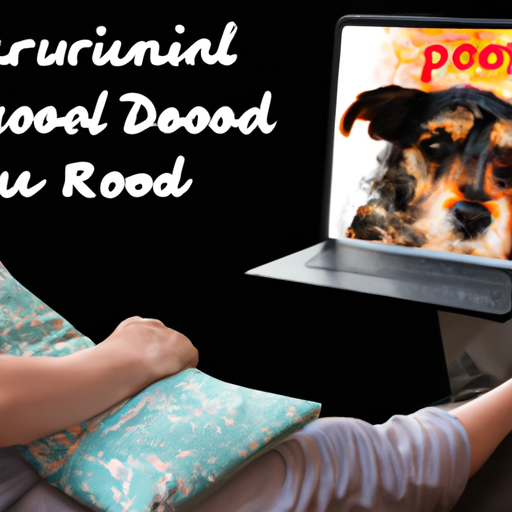As a pet parent, one of the most distressing experiences is to see your furry friend in discomfort. Colitis, an inflammation of the colon or large intestine, can cause considerable distress in dogs. But how do dogs get colitis? Let’s explore this in more detail.
- Table of Contents
- Understanding Colitis in Dogs
- Causes of Colitis in Dogs
- Symptoms of Colitis in Dogs
- Diagnosing Colitis in Dogs
- Treating Colitis in Dogs
-
Frequently Asked Questions
-
Key Takeaways
- Colitis can occur in dogs due to various causes such as dietary indiscretion, stress, parasites, or an underlying health condition.
- Common symptoms include diarrhea, mucus or blood in stool, and frequent defecation.
- Diagnosis often involves a physical examination, fecal tests, and sometimes more advanced techniques like colonoscopy.
- Treatment generally includes dietary changes, medication, and addressing underlying causes.
- Proactive care and regular veterinary checkups can help prevent colitis in dogs.
Understanding Colitis in Dogs
Colitis refers to inflammation of the colon or large intestine. It can be acute, occurring suddenly, or chronic, persisting for a long time or recurring regularly. Understanding this condition is crucial to ensuring your dog’s health and comfort. OneTopDog provides an array of information on various health conditions in dogs, including digestive disorders.
Causes of Colitis in Dogs
There are numerous potential causes of colitis in dogs, and sometimes the exact cause remains unknown. Here are some of the most common reasons:
-
Dietary Indiscretion: Dogs are known for their curious appetites. Consuming foreign objects, garbage, or spoiled food can trigger colitis. Sudden changes in diet can also lead to this condition.
-
Stress: Just like in humans, stress can play a significant role in a dog’s gut health. Situations causing anxiety or fear can trigger a bout of colitis in sensitive dogs.
-
Parasites: Various parasites, like whipworms and Giardia, can cause colitis in dogs.
-
Underlying Health Conditions: Conditions such as pancreatitis, liver disease, or inflammatory bowel disease can also lead to colitis.
Symptoms of Colitis in Dogs
Recognizing the symptoms of colitis can help you seek timely medical help for your dog. Some common signs include:
- Diarrhea, often with mucus or blood
- Frequent defecation
- Straining to defecate
- Weight loss
- Vomiting
- Decreased appetite
Regular monitoring of your dog’s bowel habits can help you notice any changes early. This guide on dog nutrition from OneTopDog provides more insights into your dog’s digestive health.
Diagnosing Colitis in Dogs
Diagnosis of colitis typically begins with a physical examination and a detailed history, including diet, symptoms, and any recent changes in lifestyle or environment.
Your vet may also conduct:
- Fecal tests: This is to check for potential parasites or infections.
- Blood tests: These can help determine if there’s an underlying condition causing colitis.
- Imaging studies: X-rays or ultrasound may be done to visualize the abdomen.
- Colonoscopy: In some cases, a colonoscopy may be needed for a more detailed examination.
A comprehensive guide on what to expect during a vet visit can be found on OneTopDog.
Treating Colitis in Dogs
The treatment of colitis in dogs depends on the cause. Some common treatment options include:
- Dietary Changes: A diet that is easily digestible and high in fiber is often recommended.
- Medication: Anti-inflammatory drugs, antibiotics, or deworming medications may be prescribed.
- Addressing Underlying Causes: If colitis is due to an underlying condition, appropriate treatment will be initiated for that.
Consult your vet for the best course of action for your pet. A study suggests that probiotics may also play a role in managing colitis in dogs, but more research is needed.
Frequently Asked Questions
1. Can stress cause colitis in dogs?
Yes, stress can trigger colitis in dogs. Changes in environment, new family members, or other stressful situations can lead to a flare-up.
2. Can colitis in dogs be cured?
The prognosis for dogs with colitis is generally good with proper treatment. However, it depends on the underlying cause and the dog’s overall health.
3. Can diet prevent colitis in dogs?
A balanced, easily digestible diet can help maintain your dog’s gut health and potentially prevent colitis. However, it’s not a guarantee, as colitis can be caused by several factors.
Remember, the well-being of your dog is in your hands. Regular vet checkups, a balanced diet, and a stress-free environment can go a long way in preventing not just colitis, but various other health conditions in dogs.



